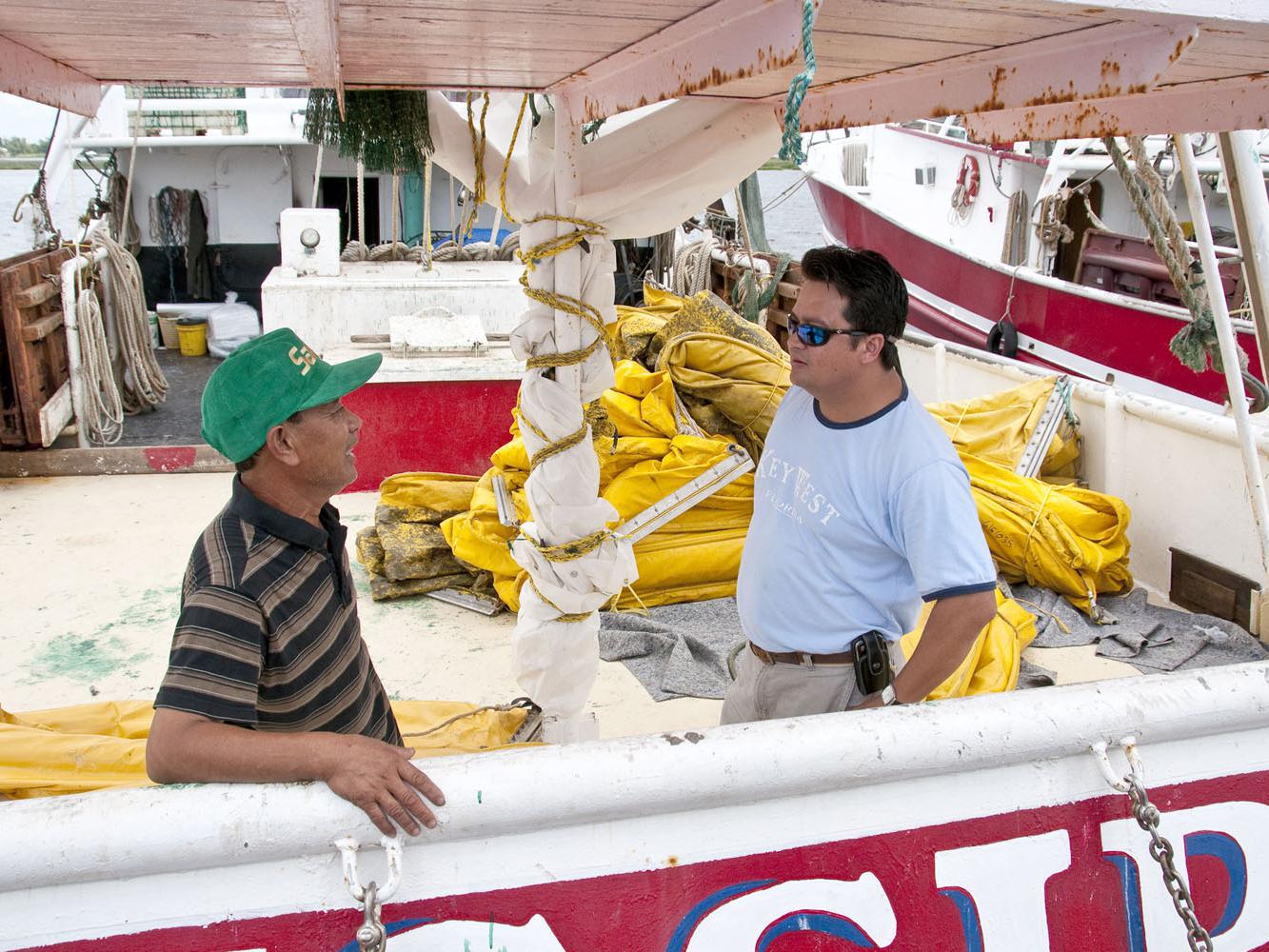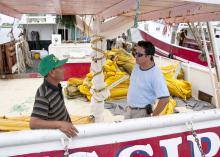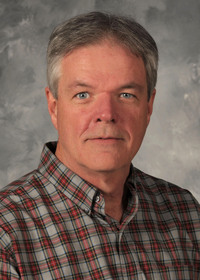Information Possibly Outdated
The information presented on this page was originally released on August 20, 2010. It may not be outdated, but please search our site for more current information. If you plan to quote or reference this information in a publication, please check with the Extension specialist or author before proceeding.
Shrimpers seeing low yields, but excellent quality
By Karen Templeton
MSU Ag Communications
BILOXI – Shrimp landings may be way below average this season, but the quality of Gulf shrimp is still good.
Shrimping began on time when state waters opened on June 3. Because of the Deepwater Horizon oil spill, partial closures were implemented beginning on June 8. By July 1, state waters had completely closed.
“With closures starting only one week into the season, it was tough to get much done,” said Dave Burrage, professor of marine resources with the Mississippi State University Extension Service. “The waters reopened on July 30, but few fisheries are up and running at this point.”
Further contributing to the low landings are the high number of shrimpers temporarily working in BP’s Vessels of Opportunity program.
“We just don’t have as many boats out there because BP is paying shrimpers and fishermen pretty well to skim oil,” Burrage said. “Combine that with the slow start because of the closures, and you end up with a tough season.”
Burrage said in June, shrimpers generally land about 1.5 million pounds of shrimp. This past June, they landed only 186,000 pounds.
“There is a silver lining here for shrimpers in that they are getting good prices,” Burrage said. “Prices are up about a $1 per pound for most count sizes.”
More importantly, Burrage said, the quality of the shrimp is good.
“The quality of Gulf shrimp is excellent, and it is safe to eat,” he said. “Waters were only closed as a precaution, not because seafood was affected.”
Dale Diaz, Mississippi Department of Marine Resources’ office director, said Gulf shrimp have been through rigorous testing.
“We take seafood safety seriously, and any area of Mississippi’s waters that were threatened by surface oil were closed purely as a precautionary measure,” Diaz said. “Buffers were placed around threatened waters, and we worked closely with federal agencies on reopening the waters, only after areas were oil-free for a determined period of time and after sensory and chemical testing showed that seafood was not affected.”
Diaz said his agency, in cooperation with the Mississippi Department of Environmental Quality and the Mississippi Department of Health, coordinates the testing of shrimp, finfish, crab and oyster samples from state waters. All test results have indicated that the samples are not contaminated.
Burrage said the oil spill clean-up activities may not be the only reason this season has been poor.
“Of course, we’ve had less boats out there, but it is possible that there are fewer shrimp than usual as well,” he said. “We’ve had high water temperatures this summer and some shrimpers think that is the reason we are seeing low yields,” he said.
Mississippi shrimpers are not the only ones who are having a bad season.
“Some of our big freezer boats go out to Texas’ waters around July 15 of every year,” Burrage said. “They’ve reported that they did not land much at all. It has just been tough everywhere.”
Steve Bosarge of Bosarge Boats Inc. has owned his business in Pascagoula since 1976 and has seen the highs and lows that come with the shrimping business.
“What this all amounts to is the season getting off-track with closures, and now that things are really getting started, brown shrimp season is coming to an end,” Bosarge said. “Vessels of Opportunity is winding down, so we may see more shrimpers out there for white shrimp season.”
Bosarge said the future is uncertain, but he expressed confidence that the waters will remain open and the quality will remain good.
“There has been so much speculation about what will or could happen, but there have been plenty of precautions taken and testing done,” he said. “We just prepare for the worst and hope for the best.”





